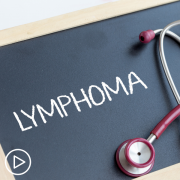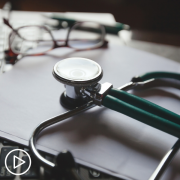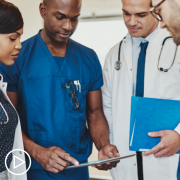Should DLBCL Patients Consider a Second Opinion?
Should DLBCL Patients Consider a Second Opinion? from Patient Empowerment Network on Vimeo.
Should diffuse large B-cell lymphoma (DLBCL) patients consider a second opinion or consultation with a specialist? Dr. Jean Koff explains the benefits of a second opinion and how it could help provide improved care.
Dr. Jean Koff is an Assistant Professor in the Department of Hematology and Oncology at Winship Cancer Institute at Emory University. Learn more about Dr. Koff, here.
See More From The Pro-Active DLBCL Patient Toolkit
Related Programs:

|
Transcript:
Katherine Banwell:
What’s your advice to patients who might feel like they’re hurting feelings by seeking a specialist or a second opinion?
Dr. Koff:
Yeah, I would put them at ease. I would say that the vast majority of doctors who refer their patients to me for a specialty opinion or a second opinion who are not specialists, they are happy to have a specialist weigh in and give some guidance and expertise on treatment. Because we all have the same goal, which is to give you the patient the best treatment that we know how to, the best recommendations for your particular disease.
The way I see co-managing a patient who has maybe a community physician that they started off seeing and someone like me, who they see as a second opinion is that I work with their local doctor as part of a team. And I think of us as both team members in treating their cancer.
And it has not been my experience that these doctors have their feelings hurt when a specialist is brought on. A lot of time it’s in fact the opposite that they are glad for the patient, that there is somebody who can help guide treatment decisions.








